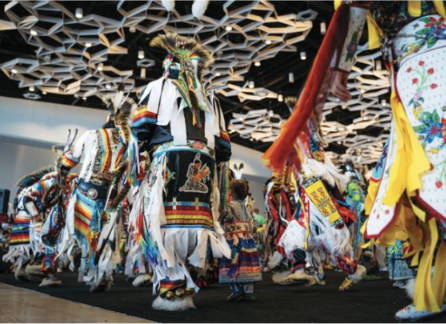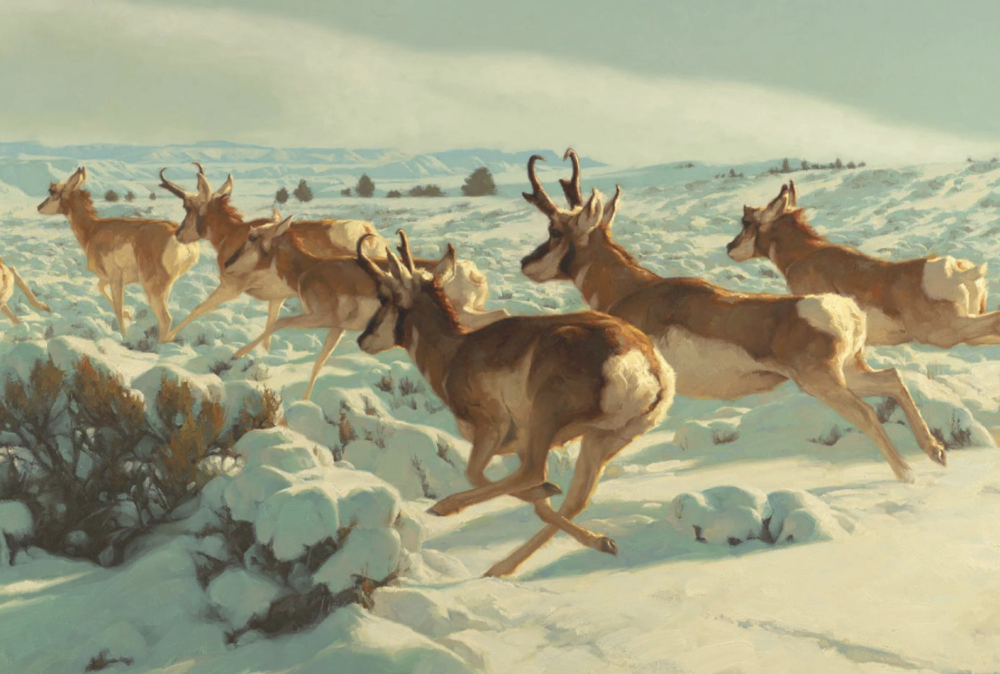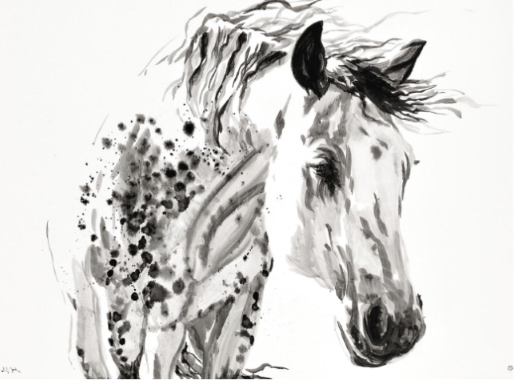The Father of Canadian country Music
Wilf Carter is commonly recognized as Canada’s first country music star. Also known as the Yodelling Cowboy and, in the United States as Montana Slim, Carter had a profound impact on Canadian country music from the 1930s until the end of the 1950s.
Born in 1904 in Nova Scotia, Carter moved from the east coast to Alberta in the early 1920s where he worked on ranches and joined the Canadian rodeo circuit. Throughout the 1920s he mixed competing with singing and guitar playing.
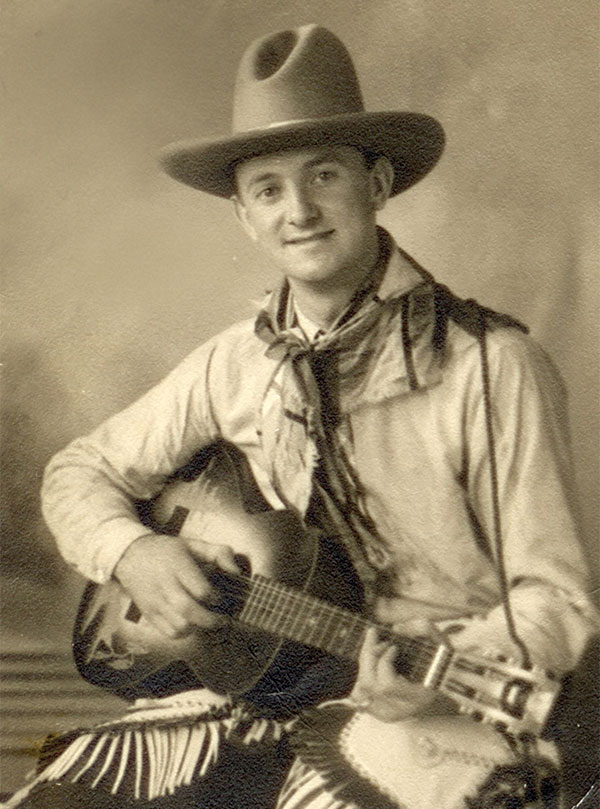
However, according to Don Cusic, author of The Cowboy in Country Music, the advent of radio and the recording industry in the 1920s and 1930s had a profound impact on performers: “Professional entertainers emerged and, as rural music became more commercial, rural performers had careers instead of an avocation.”
By 1929, Carter had retired from bronc riding and landed a job with a Calgary radio station, CFCN, singing one night each week. Unlike some performers who presented a western image but did not embrace the western lifestyle, Wilf was an authentic cowboy.
“Wilf loved being a cowboy,” explains singer, songwriter and guitarist Nathan Tinkham. “The material he wrote and sang about sprung from his life. As a rule he wrote songs about his experiences and about the things he loved.”
Indeed, Carter wrote songs about the Calgary Stampede, the Yoho Valley and the cowboys he had grown to know over his years of bronc riding. Carter also had a unique yodelling style, a passion he had picked up after seeing The Yodelling Fool perform in Nova Scotia.
According to Tinkham, Carter’s approachable and grassroots nature went beyond his songwriting. “When he toured, Wilf would pick up a copy of the local newspaper as soon as he arrived in town so that he could brush up on local events and be able to connect with his audience. That really resonated with people.”
Amidst the Great Depression and the Dust Bowl, Carter’s music continued to gain in popularity. In 1933, he recorded two songs My Swiss Moonlight Lullaby and The Capture of Albert Johnson with RCA Victor. By 1934, his record had become the first hit record ever by a Canadian country performer.
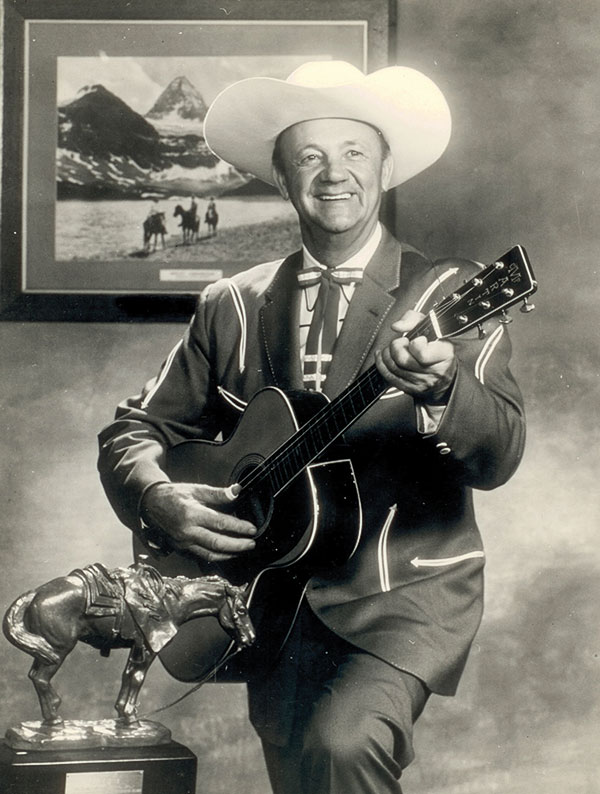
Carter’s music struck a particular cord with western Canadians who for many decades had searched for a separate identity from central Canada. “In the 1920s and 30s, the prairie provinces felt alienated from central Canada,” explains Doug Francis, retired history professor at the University of Calgary and co-editor of The Prairie West as a Promised Land. “They felt their needs were being ignored. Contextually speaking, western Canadians were likely drawn to the cowboy and country music because he fit well into the prairie identity. He was a man of his own destiny. He was independent. He was self-made.”
In the United States, where country music had originated, Carter’s popularity was also growing. In 1935, Carter became the host of two U.S. radio country music shows on CBS and NBC. Carter continued to write and perform throughout the 1930s. In 1940, he was severely injured in a car accident. Plagued by injuries, he occasionally released new recordings, returning to live performances only in 1949.
Tinkham, a Wilf Carter fan, played guitar with Wilf at the Calgary Folk Festival in 1989. He would later profile Carter in a CBC radio special in 1995. The retrospective, which he put together with Carter’s blessing, was produced following hours of interviews with Carter and some of his closest friends.
“Wilf was incredibly humble and authentic,” states Tinkham. “When I sent him the radio program profiling his career, he told me he couldn’t believe anyone would go through all that trouble to do a story about him.”
Carter was inducted into the Nashville Songwriters Association Hall of Fame in 1971, the Juno Awards Hall of Fame in 1985 and the Canadian Songwriters Hall of Fame in 2007.
True to his humble self, he performed his last show in the small town of Trochu, Alta., in 1992. He died in 1996. Carter is reported to have composed over 500 songs, including the popular There’s a Love-Knot in my Lariat and Bluebird on Your Windowsill.



